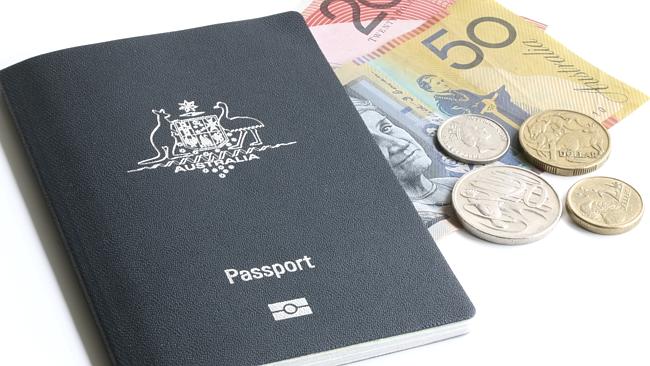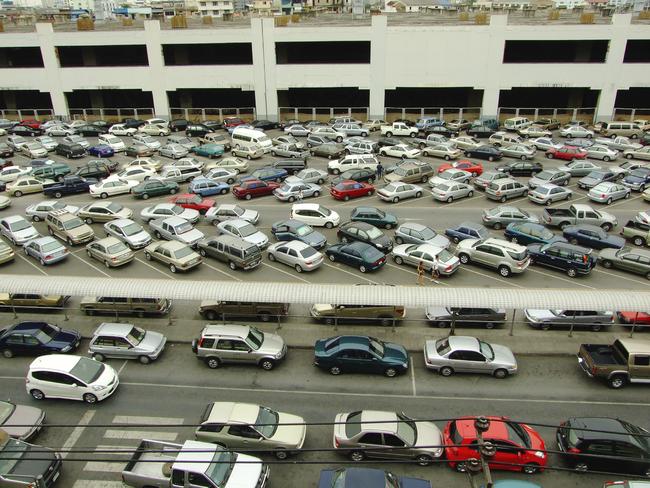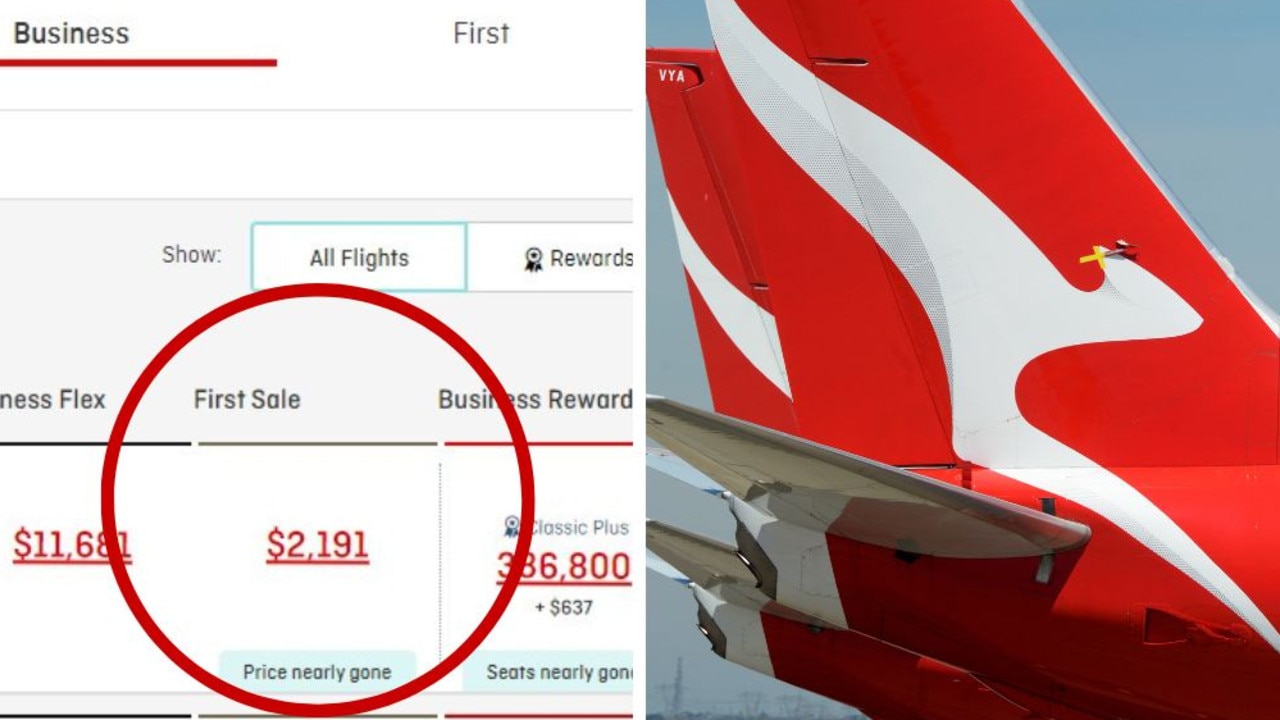11 travel fees you may not know about
THERE are a bunch of surprising things you could be charged for the next time you travel. So don’t get caught out by these 11 often-overlooked fees.

FROM overpriced Wi-Fi to hidden departure taxes, you don’t want to be strapped for cash when it comes to these often-overlooked travel fees.
So make sure you include these 11 items when budgeting for your next trip.
1. Airport transportation
Whether it’s a taxi, Uber, water taxi, shuttle bus, shared van, or train, you’re spending at least $20 each way to get to and from the airport. If you’re driving (unless you’re getting dropped off) you’ll have to pay to park your car at the airport too.
And more likely than not, you’re going to pick the most convenient option (i.e., the most expensive) when you arrive at your destination, because you’ll be tired, rushed, and annoyed with your baggage.
What to know: Look up the distance to your hotel and call ahead to see if they have any arranged airport transfers. Pre-book any shuttle services or shared vans if you can, and budget appropriately using fare estimates online.
If you’re going to take a taxi or Uber, make sure to ask for a flat rate, as many times there are standard fees for airport trips.
2. Entry and departure tax
Many countries have an entry and/or departure tax for coming into and out of said country. It can vary by length of stay.
What to know: This is typically paid at the airport and is sometimes included in your airfare, so make sure to research before hand if this is the case. Most developing countries will not accept a credit card for this charge. Try to carry the payment the local currency when you’re at the airport.
3. Visa
Many countries will also require a visa for entry, depending on your length of stay.
What to know: Some countries will require you to apply for a visa before you travel, so make sure you are aware of any visa requirements well in advance of your trip. Prices vary greatly, too. Visit the SmarTraveller website for more information on what types of visas you will need for international travel.
4. Mobile phone data usage
Chances are you’ll be in some sort of situation on an international trip where you’re going to need to use data roaming on your mobile phone. Without an international plan or foreign country’s SIM card, you will be left with hefty roaming charges.
What to know: Put a basic international plan on your phone if you don’t have it unlocked. Most basic plans will give you “cheap” data in case of emergencies. If you do have your phone unlocked and will be travelling abroad for a longer period of time, it may be wise to get a SIM card for the country you’re travelling in to avoid higher international plan fees.
5. Tipping
Each country is different. In some countries it’s rude to tip, and in others it’s rude if you don’t.
What to know: Research your destination beforehand. In some countries you won’t have to tip at all, which will save you money on meals out.
In other countries, however, make sure to budget at least 15 per cent into your meals for tipping. And don’t forget service personnel — maids, luggage attendants, bartenders and drivers will expect tips.
6. Parking and tolls
If you’re taking a road trip, you usually budget for fuel and pit stops, but often forget about tolls. Parking fees can add up, too.
What to know: Research your route for potential tolls and get a transponder like an E-ZPass (if applicable to your route). Make sure to have at least $40-50 cash on you before hitting the road for a long car ride, too.
Always estimate on the higher end for parking fees, especially if you’re planning on parking in the city, in which case you can never rely on street parking. If you are parking at a hotel, ask ahead of time for the parking fees per night to budget accordingly.

7. Transaction, currency exchange and ATM fees
Depending on your bank and credit cards, you’ll likely encounter both ATM fees and foreign transaction fees abroad. ATM fees are typically over $5 per withdrawal and foreign transaction fees can range from 1-3 per cent.
Travelex (and other currency exchange companies’ ATMS, too) will also charge you an outrageous exchange rate (sometimes as high as 10 to 11 per cent — the same you would pay at the retail exchange counter).
What to know: Many credit cards now offer cards with low or no foreign transaction fees, so if you travel a lot and are looking to open up a new credit card, do your research.
If you want to have cash right when you land and avoid airport exchange fees, it’s best to order through your bank. Just make sure to give a few weeks’ notice if you’re heading beyond a common tourist country.
8. Higher prices at airports
Everyone knows prices are higher at the airport, so don’t leave purchases like books, gum, magazines, neck pillows, and souvenirs to the last-minute. You’ll also encounter higher checked bag fees with many airlines at the airport versus pre-checking online.
What to know: Here’s a list of things you can pack that will save you money at the airport.
9. Emergencies
While these are unpredictable, there are some precautionary measures you can take beforehand to make potential emergencies much easier. Without international coverage, you could face medical charges well within the thousands if an accident happens overseas.
What to know: It’s all about travel insurance. When taking a longer trip abroad, especially if you’re travelling to developing countries, renting a car, or engaging in adventure activities, you definitely want to consider a travel insurance plan.
10. Accommodation taxes and fees
Ah, hidden hotel fees. From ridiculous minibar prices and overpriced parking to absurd Wi-Fi costs and “concierge” fees on your final statement, hotel bills are getting out of control. (Some hotels even charge for airconditioning.)
What to know: Sites like ResortChecker and hotelwifitest will help you determine if your accommodation is a culprit of the undisclosed-fees squeeze. Check review sites, too, for honest and well-rounded opinions about location, views, hidden fees, and room conditions.
11. Local taxes
Taxes vary by country and state, so don’t be surprised if you don’t pay tax on clothing in your home state but find you’re charged up to 8 per cent in another. Be wary of these differences on things like car rentals, insurance, hotels, meals, clothing, and alcohol.
Generally speaking, most foreign countries include taxes into the listed price of an item (eg: on a menu or clothing tag).
What to know: Think twice before shopping duty free, as generally speaking most items are less expensive at a major retailer. If you make large purchases abroad, make sure you fill out the appropriate forms at the airport to claim back your tax (although this is sometimes more work than it’s worth).
Domestically, don’t shop at chain stores that you can shop at in your home state if you have a lower sales tax.
This story originally appeared on SmarterTravel.com.



